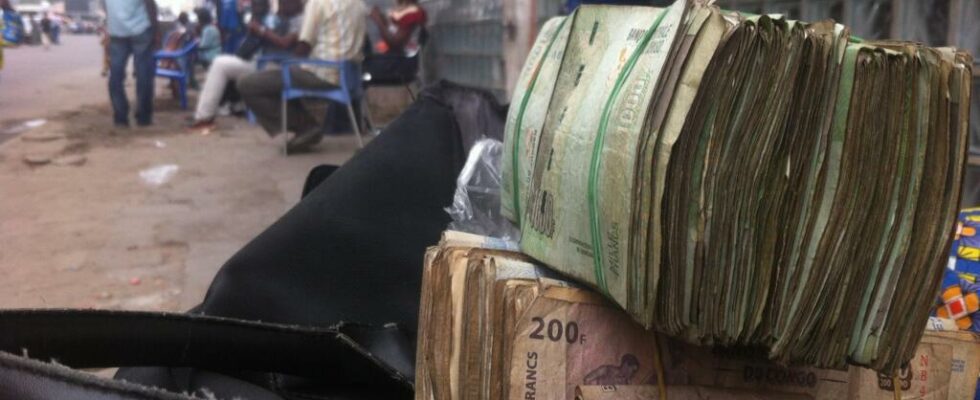The Congolese authorities announced, Thursday, January 2, the doubling of the guaranteed interprofessional minimum wage (SMIG) in the DRC. Minister of Labor and Employment, Ephraïm Akwakwa Nametu signed an order in which the minimum remuneration will increase from 2.5 to 5 dollars as of February 1. The measure will concern both the public and private sectors.
2 mins
with our correspondent in Kinshasa, Pascal Mulegwa
Following the announcement of the doubling of the guaranteed interprofessional minimum wage (SMIG) from February 1 in DRCthe Congolese Minister of Labor and Employment, Ephraïm Akwakwa Nametu, hides neither his optimism nor his firmness towards any recalcitrant bosses. “ This is a regulatory act whose application is obligatory, especially since this measure is the result of an effort to which everyone has agreed. [elle intervient à la suite d’un dialogue organisé en octobre dernier entre le gouvernement et les organisations syndicales et patronales, NDLR]. Of course, some crooked people may not want to respect it, but the general labor inspectorate is there to enforce the decree that I have just signed.r,” he asserts.
We decided by mutual agreement that the SMIG should be readjusted to 14,500 Congolese francs.
Ephraïm Akwakwa Nametu, Congolese Minister of Labor and Employment
While this decision is obviously welcomed with enthusiasm by public sector unions, they are however wondering how it will be applied, as the 2025 finance law has not provided for this revaluation.
“ We have the impression that this new SMIG was promulgated for the private sector »
Specializing in public finances, the Congolese NGO CREFDL hopes that the Congolese state will set an example even if its spokesperson, Valéry Madianga, seems to doubt it. “ We have the impression that this new SMIG was promulgated for the private sector, he explains. While, in the public sector, we have already had difficulty applying the current minimum wage for many years, its new amount will pose enormous problems. The government should be realistic and consider a collective budget in March to integrate this new policy into its programming. », continues he.
The question of the exemplary nature of the Congolese State arises all the more as theIMF – an institution which remains a privileged partner of Kinshasa – remains very hostile to the explosion in the wage bill of civil servants and is pushing, on the contrary, the DRC authorities to reduce it. He would therefore like to see it increase to 45% of the state budget, compared to nearly 70% currently.
Also readNigeria doubles civil service minimum wage in the face of inflation
